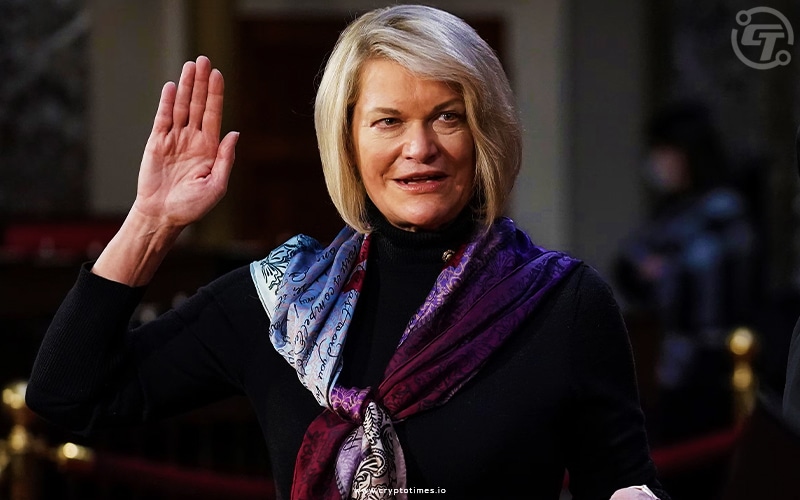United States Senator Cynthia Lummis remains steadfast in her commitment to developing a positive regulatory framework for cryptocurrencies, acknowledging the urgent need given their rapid evolution and growing adoption.
Partnering with Senator Kirsten Gillibrand, Lummis is spearheading a bipartisan initiative to propose comprehensive regulations for digital assets in the United States.
Lummis recently garnered praise on Crypto Twitter as she reaffirmed her dedication to facilitating digital asset ownership and trading within the country. Her announcement serves as a reminder of the anticipated bill, which was originally slated for release in April.
The forthcoming legislative effort is expected to make significant strides in Congress this year, providing a crucial framework for the fast-paced and ever-changing digital asset industry.
The proposed bill aims to establish clear definitions for cryptocurrencies, potentially removing the “security” designation, and create a stable and transparent framework that promotes innovation and responsible growth in the crypto industry for businesses and investors.
Senator Gillibrand emphasizes the importance of a meticulous approach. The revised bill will offer explicit guidelines on token acquisition procedures, creating a comprehensive framework that covers various aspects of tokenization.
While the legislation will reportedly impose a universal ban on algorithmic stablecoins, further discussions are needed to determine the entities authorized to issue stablecoins and the requirements for maintaining U.S. dollar reserves.
Senator Lummis also highlighted her party’s recent success in preventing the inclusion of a 30% digital asset mining tax in the debt ceiling deal. However, she stressed that the battle to establish a transparent regulatory framework for the crypto industry is ongoing and far from being concluded.
The collaborative efforts of Senators Lummis and Gillibrand in proposing comprehensive regulations for cryptocurrencies are anticipated to bring clarity, encourage innovation, and foster responsible growth in the dynamic crypto sector, shaping the future of digital asset regulations in the United States.
Also Read: Congress Members Express Concerns Over Crypto Tax Compliance







